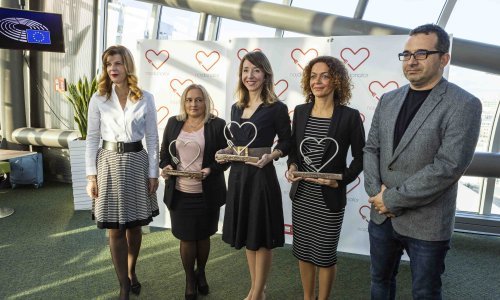Croatia's Agriculture Ministry said on Saturday that there was no reason to panic over minimally increased levels of aflatoxins in some milk packages of the Dukat and the Vindija dairy companies, as the established concentrations of these naturally occurring mycotoxins had no impact on human health.
The scandal broke out when Bosnia and Herzegovina banned the import of milk produced by the Croatian companies Dukat and Vindija, claiming that certain imported packages contained levels of carcinogenic aflatoxins above the acceptable levels. In the meantime, Montenegrin authorities also ordered the withdrawal of the disputed milk packages from shelves in shops in Montenegro, the local media reported on Saturday afternoon. On Saturday evening, the Bosnian food safety agency reported that the ban would be applied to some Vindija milk packages but stopped short of mentioning Dukat. The ban will be in place until Vindija milk products successfully pass ten consecutive tests, according to the Bosnian agency.
Croatian Assistant Agriculture Minister Mirjana Matausic-Pisl held a news conference in Zagreb today to explain the latest development after the ministry on Friday also ordered the withdrawal of the products pending tests.
The Croatian Veterinary Institute carried out tests, and the samples with aflatoxins above the permissive level have been also forwarded to Vienna for additional testing.
The Croatian official also dismissed speculation that the Vidnija and Dukat packages had contained imported milk. She said that the milk quantities with aflatoxins had come from domestic farms and that the cause of the increased levels of that toxin was very probably maize produced in Croatia.
Aflatoxins are naturally occurring mycotoxins that are produced by many species of Aspergillus, a fungus. Aflatoxin-producing members of Aspergillus are common and widespread in nature. They can colonize and contaminate grain before harvest or during storage.
Asked by the press why the information about increased levels of aflatoxins in milk had come first from Bosnia, Matausic-Pisl explained that Croatia was now implementing the system of food control, as proposed by the European Union, which means that producers are bound to carry out controlling tests.
"Croatia has implemented all EU regulations, including those about the permissive concentrations of aflatoxins, that are more stringent than such regulations, for instance, in Russia or the USA. Accordingly, the responsibility for the milk control is transferred to producers. The duty of the Veterinary Institute is to check producers," she said.
































